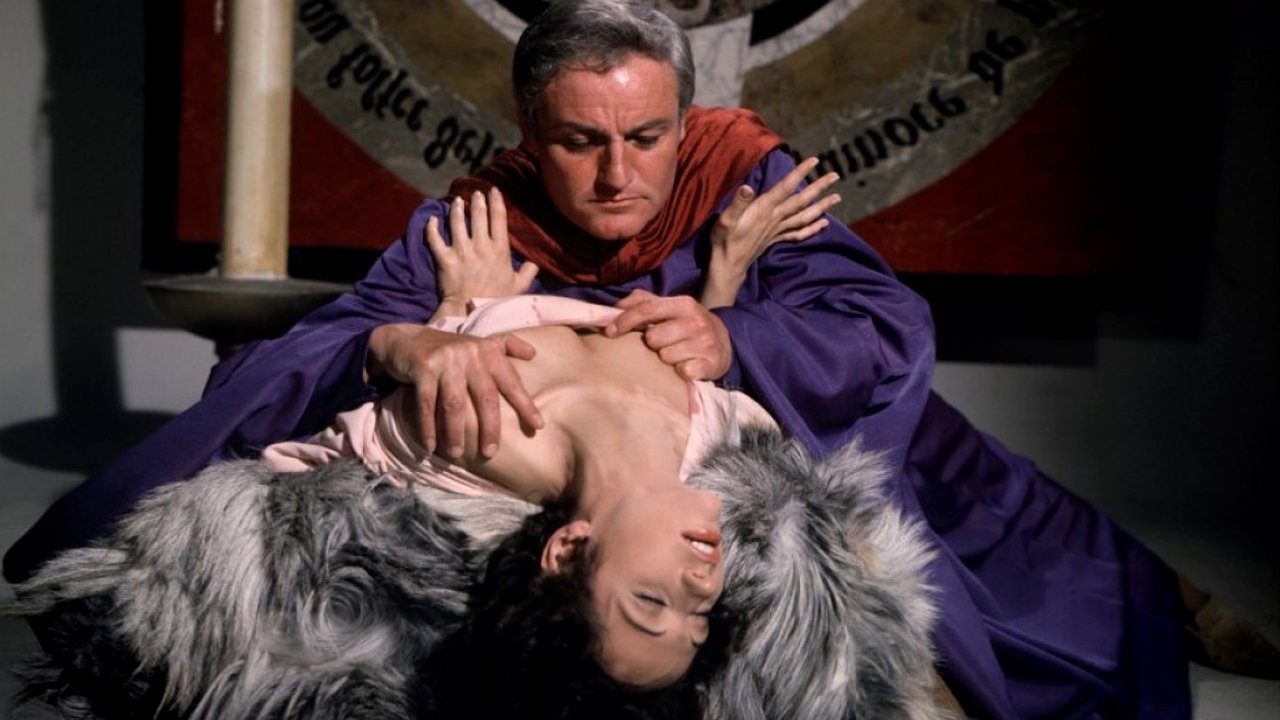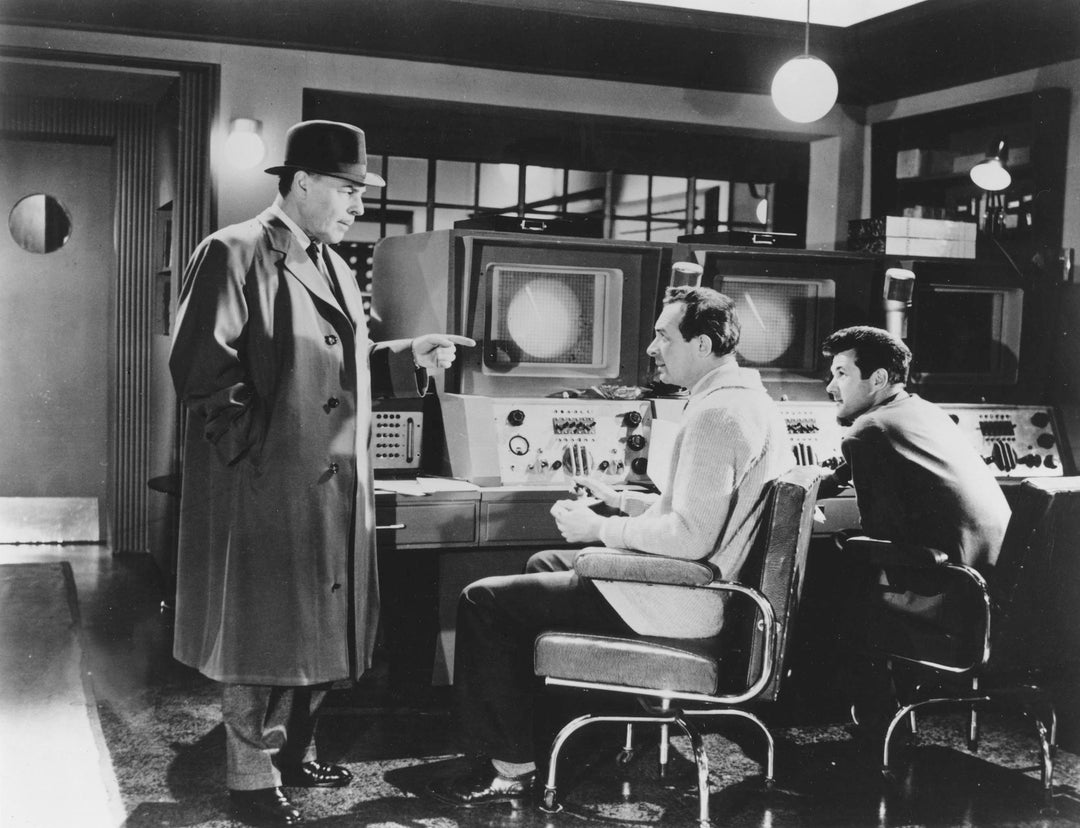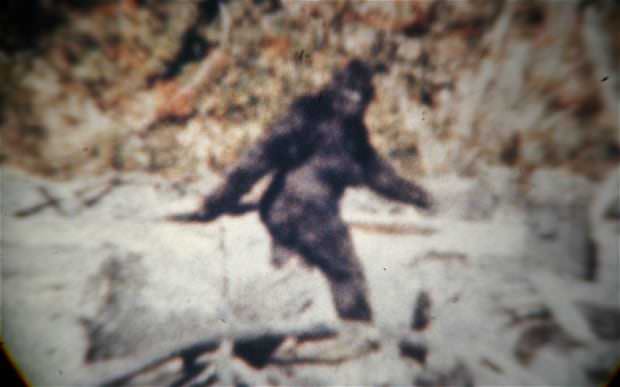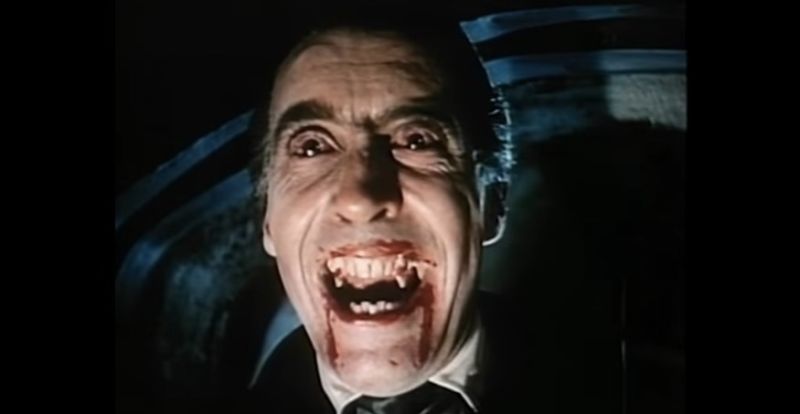Crazy about Cults

The dictionary refers to the notion of a “cult” as a small group of people who are devoted to a faith or cause that is regarded as “unorthodox or spurious.” However, thanks to several high profile and tragic true life incidents the term has taken on a darker onus in the zeitgeist and with the public at large.
It is this perception of something sinister that famed show-runner Ryan Murphy was hoping to tap into when he announced the theme of the most recent season of American Horror Story. As with previous years, Murphy is purposely leaning into the world of genre tropes, taking the expectations of his audience and subverting them. However, unlike seasons past, which referenced more fantastical genre traditions (haunted houses, vampires, witches, etc.), by exploring the world of cults, Murphy brings the fear to a much more tangible reality.
 Storytellers have always been fascinated with the concept of cults as a mechanism for horror, and, in a way, it makes perfect sense. Whereas monsters, ghosts, and other supernatural creatures have an abstract quality, there’s a palatable reality to the notion of dealing with human beings and the strength of their convictions. In many ways, it is the intensity of these individuals and their devotion that motivates the terror in the stories in which they are represented. Think about it: The true paranoia and horror of Rosemary’s Baby comes less from the abstract notion of the devil…and more from the very present reality that the people in Rosemary’s apartment building may serve him.
The utilization of cults as a trope in horror films not only appeals to our fear of that which we don’t understand, but also serves as a strong social reflection on the dangers of blind fanaticism. Plus, it’s just a delicious way to put a communal face to some our deepest rooted phobias.
Even before the advent of cinema, the cult sub-genre has been utilised by storytellers to engage their audiences in fright. Acclaimed author H.P. Lovecraft notably centred many of his tales around followers of an arcane religion that often caused trouble for his protagonists. In fact, Lovecraft’s model would later set the mould for future works such as Stephen King’s Children of the Corn and John Carpenter’s In the Mouth of Madness, both of which depicted entire towns held in the sway of a skewed belief system. Similarly, films like 1943’s The 7th Victim, 1973’s The Wicker Man (starring Hammer mainstay Christopher Lee), and 1975’s Race With the Devil each delivered terror at the hands of mania-induced humans devoted to a cause. In each case, even if something otherworldly was implied, it was merely normal people who posed the biggest threat. Hammer itself, with films such as The Devil Rides Out and To the Devil…a Daughter!, utilised the trope on numerous occasions to explore themes of errant belief. Even earlier studio efforts, such as Taste the Blood of Dracula, which depicted the consequences of a man’s fanatical devotion to the cult of the Count, presented themselves as cautionary tales of blind devotion.
Storytellers have always been fascinated with the concept of cults as a mechanism for horror, and, in a way, it makes perfect sense. Whereas monsters, ghosts, and other supernatural creatures have an abstract quality, there’s a palatable reality to the notion of dealing with human beings and the strength of their convictions. In many ways, it is the intensity of these individuals and their devotion that motivates the terror in the stories in which they are represented. Think about it: The true paranoia and horror of Rosemary’s Baby comes less from the abstract notion of the devil…and more from the very present reality that the people in Rosemary’s apartment building may serve him.
The utilization of cults as a trope in horror films not only appeals to our fear of that which we don’t understand, but also serves as a strong social reflection on the dangers of blind fanaticism. Plus, it’s just a delicious way to put a communal face to some our deepest rooted phobias.
Even before the advent of cinema, the cult sub-genre has been utilised by storytellers to engage their audiences in fright. Acclaimed author H.P. Lovecraft notably centred many of his tales around followers of an arcane religion that often caused trouble for his protagonists. In fact, Lovecraft’s model would later set the mould for future works such as Stephen King’s Children of the Corn and John Carpenter’s In the Mouth of Madness, both of which depicted entire towns held in the sway of a skewed belief system. Similarly, films like 1943’s The 7th Victim, 1973’s The Wicker Man (starring Hammer mainstay Christopher Lee), and 1975’s Race With the Devil each delivered terror at the hands of mania-induced humans devoted to a cause. In each case, even if something otherworldly was implied, it was merely normal people who posed the biggest threat. Hammer itself, with films such as The Devil Rides Out and To the Devil…a Daughter!, utilised the trope on numerous occasions to explore themes of errant belief. Even earlier studio efforts, such as Taste the Blood of Dracula, which depicted the consequences of a man’s fanatical devotion to the cult of the Count, presented themselves as cautionary tales of blind devotion.
 From the standpoint of social commentary, it makes sense. Horror, at its best, serves as a reflection of the fears of the society from which it was born. Throughout human history, we’ve witnessed horrors executed in the name of fanatical belief. It’s an unfortunate fact that’s always been part of our cultural awareness. That the genre should zoom in on this and amplify it for the sake of entertainment and catharsis is just par for course.
More so, what the “cult” in each film represents is also reflective of the time. For example, the height of the “satanic panic” of the 80s gave us films like 1987’s The Believers, the aforementioned Children of the Corn, and the later, but referential House of the Devil.
… and that tradition carries on today: In the wake of the events at Jonestown, Heaven’s Gate, and Waco, movies such as The Sacrament, Red State, and the recent The Initiation all serve as reflections of true life incidents.
With American Horror Story: Cult, it has been suggested that Murphy will use the lens of this time-honored trope to also turn a discerning eye on to the fanaticism that recently surrounded the 2017 American presidential election. If true, rather than take the political stance this seemingly implies, Murphy will instead be carrying on a long tradition in horror of dissecting the dangers of blind devotion.
More so, commentary aside, the fervor surrounding the show’s new theme suggests that horror fans are still interested in the topic.
…and it seems there’s no end to cult power in the genre: Even as American Horror Story is poised to tackle the issue, everyone’s favorite killer doll Chucky returns this fall in a new outing all about a sect devoted to him, aptly titled The Cult of Chucky.
Maybe, at the end of the day, the intense interest in this subgenre of horror just shows that everyone is eager for something to believe in…even if that something is fear.
Either way, we remain, as ever, devoted…to the movies.
From the standpoint of social commentary, it makes sense. Horror, at its best, serves as a reflection of the fears of the society from which it was born. Throughout human history, we’ve witnessed horrors executed in the name of fanatical belief. It’s an unfortunate fact that’s always been part of our cultural awareness. That the genre should zoom in on this and amplify it for the sake of entertainment and catharsis is just par for course.
More so, what the “cult” in each film represents is also reflective of the time. For example, the height of the “satanic panic” of the 80s gave us films like 1987’s The Believers, the aforementioned Children of the Corn, and the later, but referential House of the Devil.
… and that tradition carries on today: In the wake of the events at Jonestown, Heaven’s Gate, and Waco, movies such as The Sacrament, Red State, and the recent The Initiation all serve as reflections of true life incidents.
With American Horror Story: Cult, it has been suggested that Murphy will use the lens of this time-honored trope to also turn a discerning eye on to the fanaticism that recently surrounded the 2017 American presidential election. If true, rather than take the political stance this seemingly implies, Murphy will instead be carrying on a long tradition in horror of dissecting the dangers of blind devotion.
More so, commentary aside, the fervor surrounding the show’s new theme suggests that horror fans are still interested in the topic.
…and it seems there’s no end to cult power in the genre: Even as American Horror Story is poised to tackle the issue, everyone’s favorite killer doll Chucky returns this fall in a new outing all about a sect devoted to him, aptly titled The Cult of Chucky.
Maybe, at the end of the day, the intense interest in this subgenre of horror just shows that everyone is eager for something to believe in…even if that something is fear.
Either way, we remain, as ever, devoted…to the movies.
 Storytellers have always been fascinated with the concept of cults as a mechanism for horror, and, in a way, it makes perfect sense. Whereas monsters, ghosts, and other supernatural creatures have an abstract quality, there’s a palatable reality to the notion of dealing with human beings and the strength of their convictions. In many ways, it is the intensity of these individuals and their devotion that motivates the terror in the stories in which they are represented. Think about it: The true paranoia and horror of Rosemary’s Baby comes less from the abstract notion of the devil…and more from the very present reality that the people in Rosemary’s apartment building may serve him.
The utilization of cults as a trope in horror films not only appeals to our fear of that which we don’t understand, but also serves as a strong social reflection on the dangers of blind fanaticism. Plus, it’s just a delicious way to put a communal face to some our deepest rooted phobias.
Even before the advent of cinema, the cult sub-genre has been utilised by storytellers to engage their audiences in fright. Acclaimed author H.P. Lovecraft notably centred many of his tales around followers of an arcane religion that often caused trouble for his protagonists. In fact, Lovecraft’s model would later set the mould for future works such as Stephen King’s Children of the Corn and John Carpenter’s In the Mouth of Madness, both of which depicted entire towns held in the sway of a skewed belief system. Similarly, films like 1943’s The 7th Victim, 1973’s The Wicker Man (starring Hammer mainstay Christopher Lee), and 1975’s Race With the Devil each delivered terror at the hands of mania-induced humans devoted to a cause. In each case, even if something otherworldly was implied, it was merely normal people who posed the biggest threat. Hammer itself, with films such as The Devil Rides Out and To the Devil…a Daughter!, utilised the trope on numerous occasions to explore themes of errant belief. Even earlier studio efforts, such as Taste the Blood of Dracula, which depicted the consequences of a man’s fanatical devotion to the cult of the Count, presented themselves as cautionary tales of blind devotion.
Storytellers have always been fascinated with the concept of cults as a mechanism for horror, and, in a way, it makes perfect sense. Whereas monsters, ghosts, and other supernatural creatures have an abstract quality, there’s a palatable reality to the notion of dealing with human beings and the strength of their convictions. In many ways, it is the intensity of these individuals and their devotion that motivates the terror in the stories in which they are represented. Think about it: The true paranoia and horror of Rosemary’s Baby comes less from the abstract notion of the devil…and more from the very present reality that the people in Rosemary’s apartment building may serve him.
The utilization of cults as a trope in horror films not only appeals to our fear of that which we don’t understand, but also serves as a strong social reflection on the dangers of blind fanaticism. Plus, it’s just a delicious way to put a communal face to some our deepest rooted phobias.
Even before the advent of cinema, the cult sub-genre has been utilised by storytellers to engage their audiences in fright. Acclaimed author H.P. Lovecraft notably centred many of his tales around followers of an arcane religion that often caused trouble for his protagonists. In fact, Lovecraft’s model would later set the mould for future works such as Stephen King’s Children of the Corn and John Carpenter’s In the Mouth of Madness, both of which depicted entire towns held in the sway of a skewed belief system. Similarly, films like 1943’s The 7th Victim, 1973’s The Wicker Man (starring Hammer mainstay Christopher Lee), and 1975’s Race With the Devil each delivered terror at the hands of mania-induced humans devoted to a cause. In each case, even if something otherworldly was implied, it was merely normal people who posed the biggest threat. Hammer itself, with films such as The Devil Rides Out and To the Devil…a Daughter!, utilised the trope on numerous occasions to explore themes of errant belief. Even earlier studio efforts, such as Taste the Blood of Dracula, which depicted the consequences of a man’s fanatical devotion to the cult of the Count, presented themselves as cautionary tales of blind devotion.
 From the standpoint of social commentary, it makes sense. Horror, at its best, serves as a reflection of the fears of the society from which it was born. Throughout human history, we’ve witnessed horrors executed in the name of fanatical belief. It’s an unfortunate fact that’s always been part of our cultural awareness. That the genre should zoom in on this and amplify it for the sake of entertainment and catharsis is just par for course.
More so, what the “cult” in each film represents is also reflective of the time. For example, the height of the “satanic panic” of the 80s gave us films like 1987’s The Believers, the aforementioned Children of the Corn, and the later, but referential House of the Devil.
… and that tradition carries on today: In the wake of the events at Jonestown, Heaven’s Gate, and Waco, movies such as The Sacrament, Red State, and the recent The Initiation all serve as reflections of true life incidents.
With American Horror Story: Cult, it has been suggested that Murphy will use the lens of this time-honored trope to also turn a discerning eye on to the fanaticism that recently surrounded the 2017 American presidential election. If true, rather than take the political stance this seemingly implies, Murphy will instead be carrying on a long tradition in horror of dissecting the dangers of blind devotion.
More so, commentary aside, the fervor surrounding the show’s new theme suggests that horror fans are still interested in the topic.
…and it seems there’s no end to cult power in the genre: Even as American Horror Story is poised to tackle the issue, everyone’s favorite killer doll Chucky returns this fall in a new outing all about a sect devoted to him, aptly titled The Cult of Chucky.
Maybe, at the end of the day, the intense interest in this subgenre of horror just shows that everyone is eager for something to believe in…even if that something is fear.
Either way, we remain, as ever, devoted…to the movies.
From the standpoint of social commentary, it makes sense. Horror, at its best, serves as a reflection of the fears of the society from which it was born. Throughout human history, we’ve witnessed horrors executed in the name of fanatical belief. It’s an unfortunate fact that’s always been part of our cultural awareness. That the genre should zoom in on this and amplify it for the sake of entertainment and catharsis is just par for course.
More so, what the “cult” in each film represents is also reflective of the time. For example, the height of the “satanic panic” of the 80s gave us films like 1987’s The Believers, the aforementioned Children of the Corn, and the later, but referential House of the Devil.
… and that tradition carries on today: In the wake of the events at Jonestown, Heaven’s Gate, and Waco, movies such as The Sacrament, Red State, and the recent The Initiation all serve as reflections of true life incidents.
With American Horror Story: Cult, it has been suggested that Murphy will use the lens of this time-honored trope to also turn a discerning eye on to the fanaticism that recently surrounded the 2017 American presidential election. If true, rather than take the political stance this seemingly implies, Murphy will instead be carrying on a long tradition in horror of dissecting the dangers of blind devotion.
More so, commentary aside, the fervor surrounding the show’s new theme suggests that horror fans are still interested in the topic.
…and it seems there’s no end to cult power in the genre: Even as American Horror Story is poised to tackle the issue, everyone’s favorite killer doll Chucky returns this fall in a new outing all about a sect devoted to him, aptly titled The Cult of Chucky.
Maybe, at the end of the day, the intense interest in this subgenre of horror just shows that everyone is eager for something to believe in…even if that something is fear.
Either way, we remain, as ever, devoted…to the movies.


